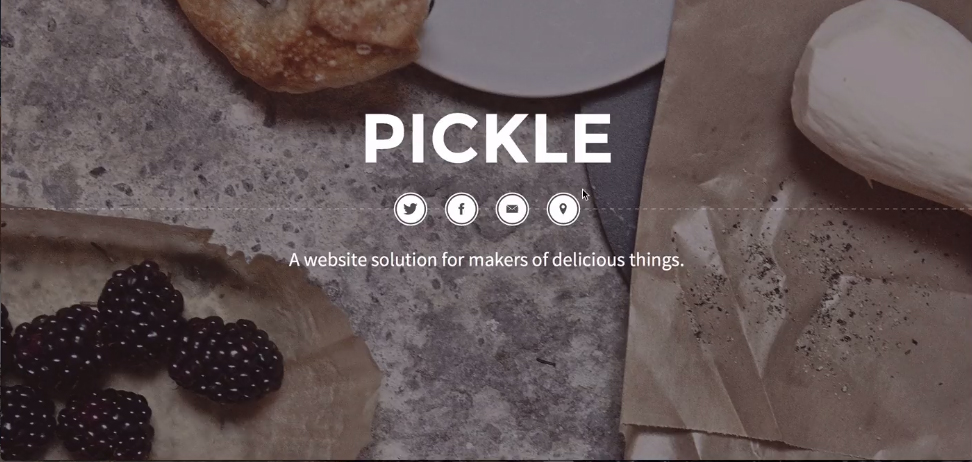Jason Schuller, the original founder of the Press75 theme company, has been off the radar for a few years as he pursued experiments with alternative publishing platforms. He officially exited the commercial WordPress theme business earlier this year when Press75 was acquired by Westwerk, following a sharp decline in the shop’s monthly revenue.
Prior to selling his company, Schuller had begun to focus more on his experimental projects, Dropplets, Leeflets, and Cinematico. Over the years, he had become disillusioned with the software, as he watched WordPress become increasingly more complex. This frustration, coupled with the weight of complex frameworks that started devouring the WordPress theme market, essentially vaporized his passion for the software and pushed him out to make something new.
Earlier this year, in an interview with Jeff Chandler, Schuller expressed his dissatisfaction with trying to make WordPress do what he wanted and said that he wouldn’t be concentrating his efforts on WordPress in the immediate future.
Video Preview of Custom WordPress Admin for the “Pickle” Project
In his never-ending quest to simplify publishing online, Schuller has once again picked up WordPress to experiment with creating a radically simplified admin design for Pickle, his restaurant-themed HTML template.
A short video preview of my #WordPress admin redesign for “Pickle”: http://t.co/lvQtgIaAWP #design
— Jason Schuller (@jptksc) October 20, 2014
Traditionally, making a template like that editable in WordPress ends up being a complex thing for your average user to navigate in the admin. The preview video shows how Schuller has re-imagined the admin for his niche one page template.
He has essentially removed the admin, de-registered all the styles and many of the components, in an effort to create a custom CMS for this particular template. The result is a better correlation between the content editing experience and the actual website, with simplified action buttons.
If you watch the preview, you’ll hear Schuller summarize why he created the simplified admin:
This is my biggest issue with WordPress right now. It doesn’t scale backward for minimalist websites like this. The CMS should reflect, in my opinion, what you’re trying to accomplish with your website, and all of these unnecessary components of WordPress just really don’t need to be here unless you need them for what you’re trying to accomplish.
Schuller said that it took him approximately two days to customize the WordPress admin to suit his template. “I’m nearly finished with it. It’s going to launch as a downloadable theme first and then I’ll be launching a hosted version as well,” he said.
The theme will not be launching on Leeflets but rather on a new domain, yet to be determined, bringing Schuller back into the WordPress theme market. Why is he returning?
“With this particular project, I really just wanted to get my vision out of my head as quick as possible,” he said. “With that in mind, I couldn’t see creating a custom CMS just for Pickle, so I figured WordPress would be the best way to do that quickly. Plus, you still can’t ignore WordPress’s reach.”
I asked Schuller if the Pickle admin theme is a one time project or if he plans to create more niche admin themes to accompany his designs. “If Pickle goes well, I have a few other niche admins in mind for specific templates,” he replied.
“My goal is really simple – to help my customers/users create and manage websites. If WordPress helps me do that in an efficient way, I’m all for it. But I’ll be doing it my way this time around,” he emphasized.
Schuller’s minimalist approach to the WordPress admin is something that he hopes will be easier for his target market to wrap their brains around. The popularity of the Pickle template is what spurred him on to create an editable version using WordPress. “I wasn’t expecting much when I released the Pickle HTML template,” he said. “But it was an instant hit. There are quite a few people helping restaurants create websites with it. That’s what triggered the idea to make a WordPress version.”
At the moment Schuller is in touch with his market on a very small scale, but he hopes that it will expand with a successful launch of the Pickle theme. “My hope is that the WordPress version makes it even more enticing for businesses looking for a minimalist website/solution.”
Schuller has identified a problem that many developers are hoping to solve. WordPress core is moving towards bridging the separation between the editing experience and the display of the content, with improvements to the customizer and experimental projects like the frontend editor. Others hope that the new JSON REST API will make it easier for developers to create custom admins.
These changes cannot come soon enough, but will they be fully able to provide a more natural editing experience for users? Those, like Schuller, who have wrestled with dissatisfaction, have a decent shot at creating a revolutionary editing experience for the 10 year old platform. His inspiring work on the Pickle admin breaks WordPress out of the box and forces developers to look at the content editing experience in a new way.
A more modular admin that can easily be scaled back for minimalist websites is something that would allow developers to truly customize the CMS for any niche template or project. The WordPress admin then becomes a chameleon of sorts, able to disappear into its surroundings with the content in focus. Schuller’s Pickle experiment is a good example of this, and likely part of a trend that we’ll see more in the future.


As a content creator, rather than a coder, THIS is precisely how I’ve thought WordPress should work. And I don’t just mean for minimalist sites either. As Jason himself says, the back-end should correlate with what is being done on the front-end.
If WordPress doesn’t take the hint, some other platform will.